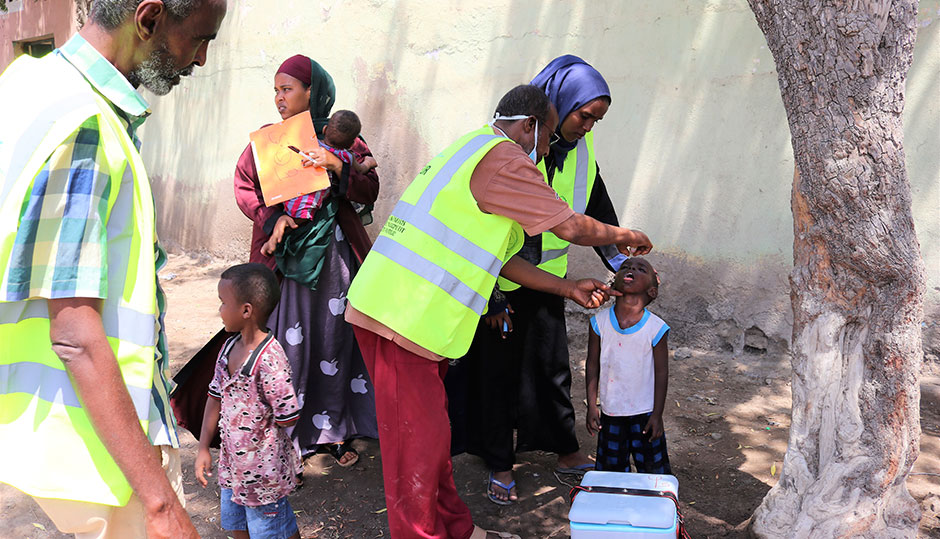More than 150 000 children under the age of five across Djibouti are targeted to receive a second dose of polio vaccine, following the first supplementary dose given in round one of the campaign in February 2022

Djibouti – 27 March 2022: The second round of the national polio immunization campaign, led by the government through the Ministry of Health in collaboration with UNICEF and WHO, begins Sunday 27 March, running for five days until Thursday 31 March. The campaign aims to reach and immunize more than 150 000 children aged 0 to 5 years across the country.
Poliovirus is highly contagious and can lead to paralysis and lifelong disability or death. Although Djibouti was declared polio-free in 2002, there are outbreaks of vaccine-derived poliovirus type 2 in other countries in the region, which underscores the risk to all children in the Horn of Africa. By carrying out this campaign, Djibouti’s Ministry of Health is protecting all children within its borders from this disease.
In the first round of the campaign, which took place between 27 February and 3 March 2022, 153 338 children under the age of five were vaccinated against polio.
In the second round, 378 multidisciplinary vaccination teams – each composed of a vaccinator, a registrar, social mobilizers and supervisors– trained by UNICEF and WHO experts will spend five days crisscrossing every neighborhood and doing house-to-house visits in Djibouti’s cities and in more remote localities in order to reach and vaccinate every child.
The United Nations Children's Fund, (UNICEF) and the World Health Organization (WHO) are supporting the campaign through the provision of novel oral polio vaccine type 2 (nOPV2), a next-generation polio vaccine. The agencies are also providing technical support to teams and staff working in the health system, but also in the field of surveillance.
“Despite the progress made in the fight against polio, the need to continue to be extremely vigilant to avoid the recurrence of this disease remains important,” said Franck Abeille, UNICEF Deputy Representative in Djibouti "These campaigns are opportunities to continue the fight against polio throughout the country, including in refugee camps.”
Acting WHO Representative to Djibouti Mohamed Jameleddine Ben Slama said, “Over recent years Djibouti has made significant improvements to both surveillance for acute flaccid paralysis, and environmental surveillance for poliovirus in sewage outflow. In launching the second round of a national campaign with nOPV2, Djibouti stands as a regional leader in the battle against poliovirus outbreaks. The country is saying, loud and clear, we refuse to give a safe harbour to the poliovirus.”
Media contacts
UNICEF
Faycal Oulmi
Communication specialist, UNICEF Djibouti
+253 094 322
Zeinab Abdillahi
Communication Officer, WHO Djibouti
+253 77 06 6380








